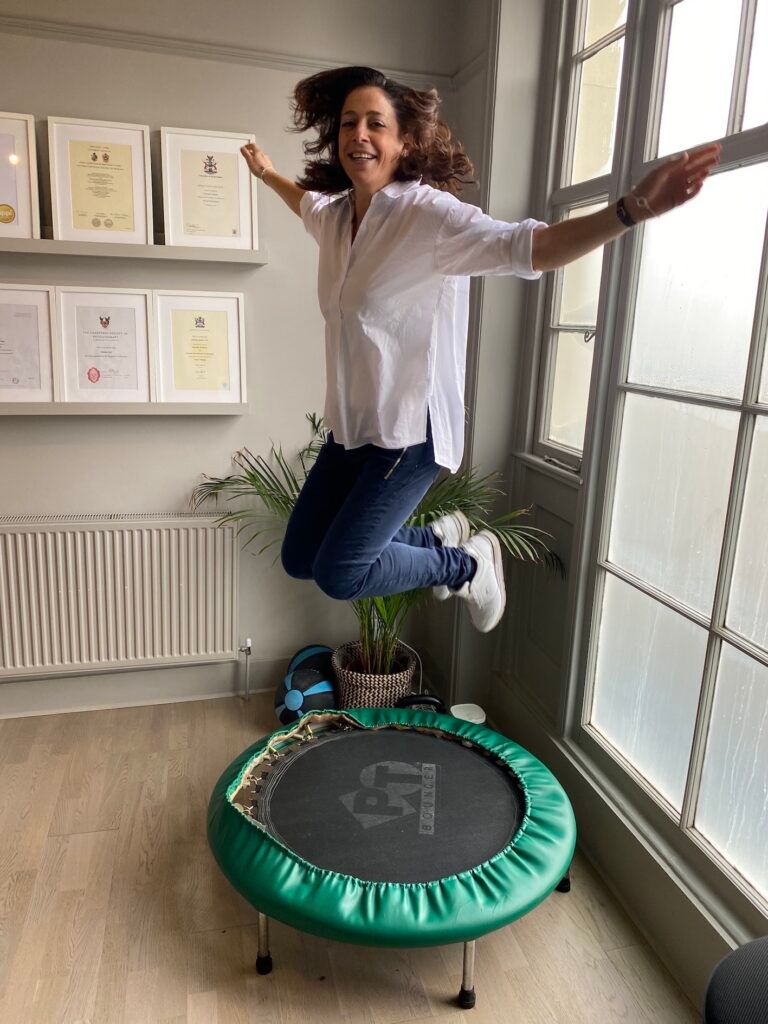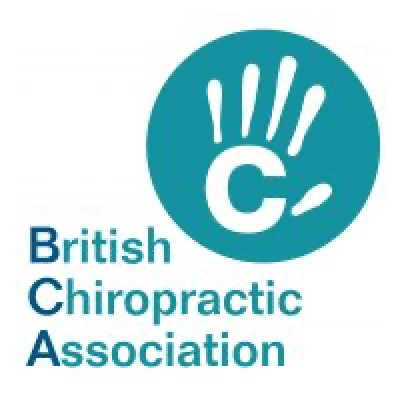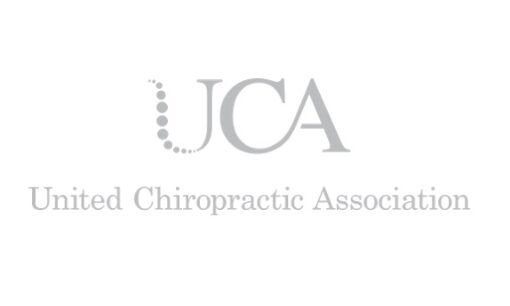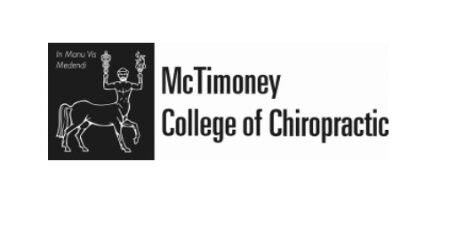Let’s Talk About Urinary Incontinence
Incontinence and other bladder issues affect women of all ages. Specialist Women’s Health Physiotherapist, Louise Rahmanou, discusses why we don’t discuss it but why we really should.
Don’t make me laugh… I might wet myself!
Back in the old days, when you were able to go for drinks in a pub with a group of people from outside your household… I met up with a group of mums from school. After possibly a few too many beverages, one mum burst out laughing. Then trying to hold back, she blurted, “Don’t make me laugh so hard… I’m going to wet myself!”
That comment opened the flood-gates (pardon the pun!) to an important topic that was most likely encouraged thanks to some Dutch courage. One by one everyone started admitting, in a game of show and tell, that they too might leak if they laughed too hard. Another claimed she also worries when she sneezes. A third shared her fear of bouncing on the trampoline with her daughter.
Cue more raucous laughter. With legs tightly crossed, of course! Truth of the matter is that the underlying issue is no laughing matter.
Few knew that I’m a Women’s Health Physiotherapist, or what that truly entails, because we’ve never touched on female urinary incontinence at the school gates. Surprising, I know right!? Once they knew, we spent the rest of the evening with me collectively teaching pelvic floor exercises and coordinating pick up times to hold group rehab sessions, just to help get those mums back on the trampoline!

But it’s normal for every woman?
The truth is, I hadn’t realised how many of my friends actually thought, that even an odd leak, every now and again was normal and part of life post-birth. I started wondering whether most women believe that it is true. Well this might come as a surprise but it’s not true, it’s not normal and you don’t have to live with it.
The sad reality is that this seems to be one of those things that no one really talks seriously about – we might meet up with our mummy mates and joke about the baby’s ‘incontinence’ but wouldn’t dream of broaching the subject of our own urinary incontinence. We might laugh along with jokes that, as mums of little ones, we’re never ‘up for it’ at bed time, but would we share that the real reason might also, in part, be because the scars from delivery feel like they’ re going to split open. That they still hurt or we’re concerned that we’ve been sewn up too tight or not tight enough and our private parts simply don’t feel our own – or even that private? Who do you dare share that information with – and how could they help you if you actually did?
But there is something you can, and should, do about it. Now, I’m a mum of two small (and gorgeous) boys, so I know what you’re likely to be thinking…
Is the information out there?
The day you left hospital with your precious newborn, you were handed a bag full of leaflets. One told you how to help your baby to sleep. One was about how to breastfeed. Another showing what their ‘normal’ milestones are, yet another about what products to buy. And there is one more about something called pelvic floor exercises and to practice them every day. Who has the time between feeding, changing nappies, constant loads of washing and relentless sleep deprivation to sift through the mountain of literature, let alone read it and actually take any of the information in? And then remember to act on it all? It’s no wonder that most of us don’t realise the importance of this ‘tiny’ exercise.
Our bodies change incredibly during pregnancy to accommodate the developing new life inside us, but what about after? Our tummy muscles and pelvic floor muscles are weakened and stretched. And what about returning to exercise and feeling ‘normal’ again?
Actually, not everyone recovers perfectly from pregnancy and childbirth. Many are left with a variety of issues. I want to shout from the rooftops ‘You’re not on your own!’
How common are these problems?
It is estimated that up to 50% of women, at some stage in their lives, experience varying degrees of pelvic organ prolapse or symptoms of bladder and bowel problems. From leaking and incontinence, having to rush to the loo frequently, or having difficulty controlling wind. Women who leak urine during pregnancy are twice as likely to experience urinary incontinence at three months post delivery. This is regardless of delivery method; vaginal or caesarean. A third of women have tummy muscle separation and weakness 8 weeks after birth. Other problems following birth could include pelvic pain, painful scar tissue and pain during intercourse.
In France, all new mums are given a course of 10 sessions of postnatal physiotherapy. How about that? Here most women don’t even know such a service exists, let alone could save them embarrassment and discomfort in the future.
GPs in the UK, even with the best will in the world, simply don’t have the time to give every new mum a full and comprehensive body check. That doesn’t mean you wouldn’t benefit from it and some sensitive aftercare. After all, if you don’t look after yourself, how can you look after your family?
What can be done to help with bladder problems?
Assessment and treatment by a Women’s Health Physiotherapist can be of significant help. The ‘Mummy MOT’ is a service designed specifically to assess every new mum. It enables a medical professional to identify and treat all of these conditions. It can also simply help you recover from pregnancy and childbirth. There are over 80 specially trained and registered ‘Mummy MOT’ practitioners in the country, (check out: themummymot.com). We are all passionate about helping mums to fully restore their bodies post birth. Clients are given a personalised rehabilitation programme specially tailored for them.

You don’t have to put up with it!
A patient success story told in the words of one mum: “After having my first daughter I had a uterine prolapse. The GP told me nothing much could be done and I’d probably wet myself every time I went for a run for at least one year, maybe forever. No further help. When I heard Louise talk at a well-being event saying the exact opposite of this and that women need not suffer endlessly after having a child I booked straight in. To my amazement she helped me get my pelvic floor in pretty good shape again. She has also supported me and given me advice in my current pregnancy, she really cares about her patients. I shall certainly be rebooking after I’ve had my second child!!!”
It’s not just for new mums and it is never too late to treat these issues. However, dealing with problems when or before they arise saves a lot of suffering.
I believe in looking after the whole person; body, mind and emotions. A holistic, mindful approach allows us to explore and look after every part of our being. Physical problems such as urinary incontinence, can affect our relationships and confidence and in extreme cases how we live our lives.
If I can change one thing for my clients and women I meet, it should be that every woman, whatever her age, can go ahead and laugh as hard as she likes.
For more information and to find out if you could benefit from having treatment with Louise, please visit our website. You can also drop us an email or feel free to give us a call on 01242 329949.
Read our next article “The Modern Neck” by Chiropractor, Kelly Nicol.





















